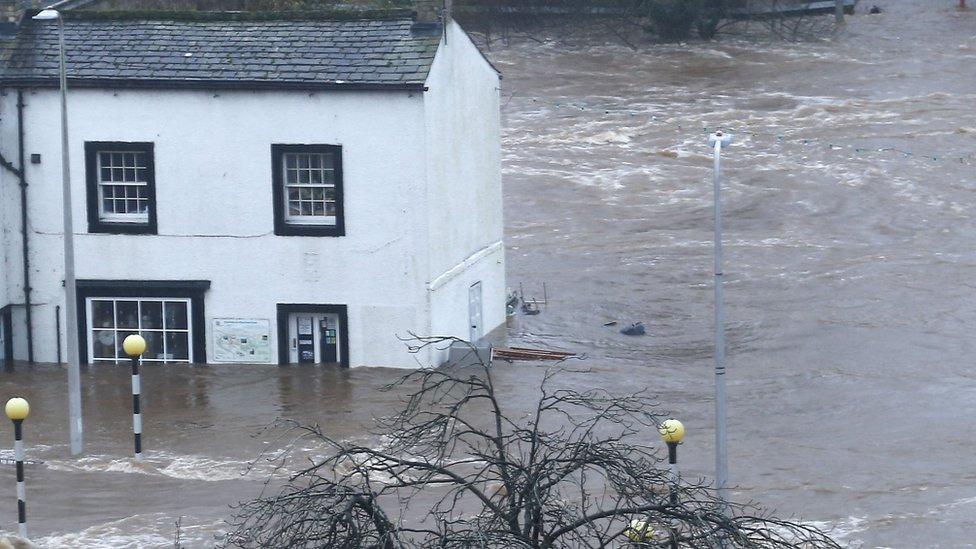The Cumbria businesses facing £50,000 excess on flood insurance
- Published
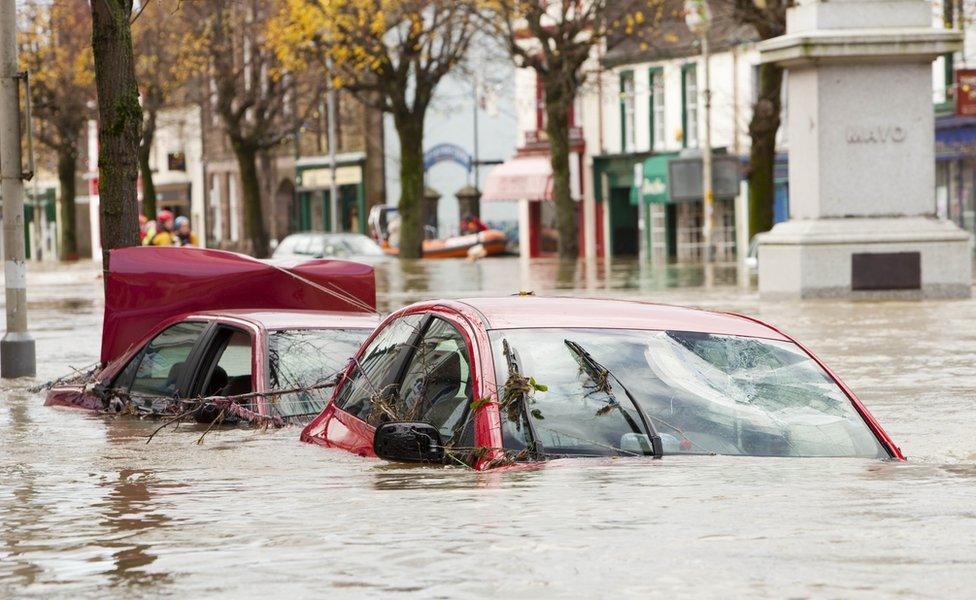
In 2009 Cockermouth's main street took the brunt as the River Derwent burst its banks
When the Flood Re scheme was set up to help homeowners flooded so often they could no longer get insurance it was estimated hundreds of thousands of people would benefit. But business owners were excluded. They now face extortionate premiums and policy excesses of up to £50,000.
In December 2015, a UK record was set at Honister Pass in Cumbria as Storm Desmond brought 341.4mm of rain in 24 hours. It was an accolade the county could have done without, coming only six years after 2009's unprecedented rainfall laid waste to hundreds of homes and businesses.
Again, last week, persistent and heavy rain had the county holding its breath, hoping flood defences would hold. The word "unprecedented" was becoming meaningless.
Businessman Andrew Marshall, who chairs Cockermouth's Chamber of Trade, had resolved to call it a day if his shop had been flooded. The cost to him of a post-deluge refit "goes into hundreds of thousands - I can't cope with that sort of number", he said.
Ever since the floods of 2009 and 2015 it had been "nigh on impossible to get insurance", he said.
"I think it was the 2009 floods that it all sort of kicked off and when we had the '15 flood, then they really didn't want to know," he said.
"Our own claim was huge. We've rebuilt the shop twice."
Some insurers impose policy excesses of £50,000 for business flooding claims, he said. Others have a lower excess - £20,000 - but will only pay 25% of the amount claimed.
The industry has provided a solution: for those business owners who want to pay there is additional insurance available to cover the excess in the first policy.
"But it's then extortionate, obviously, to cover it," Mr Marshall said.
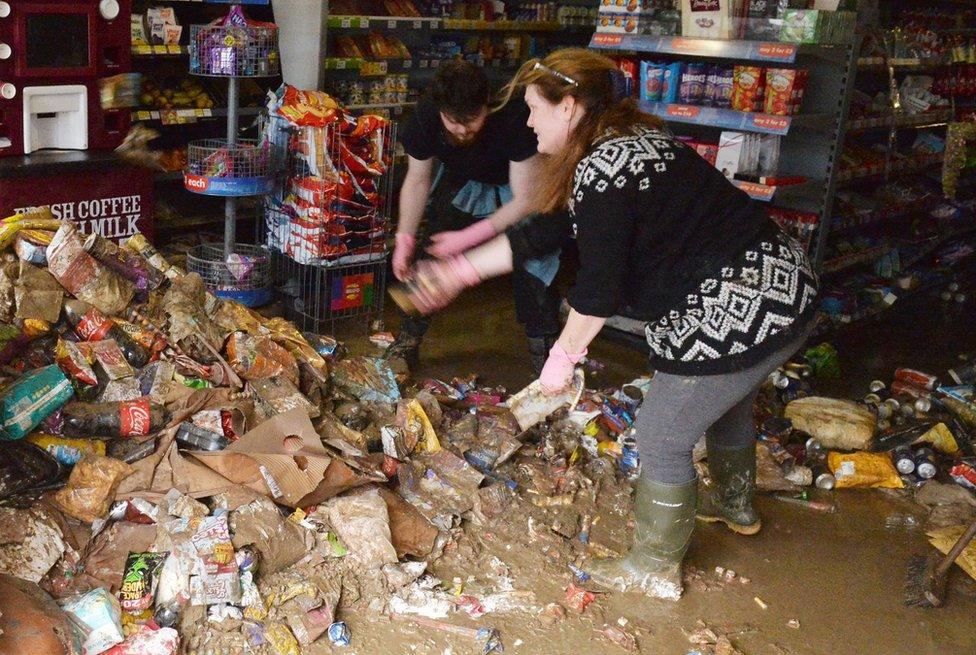
Shop workers in Cockermouth had their work cut out for them in December 2015
The British Insurance Brokers' Association (BIBA) said it was helping businesses find suitable insurance.
Executive director Graeme Trudgill said the situation created a "complex risk" that sometimes could not be catered for "through channels for standard claim-free businesses" and avoiding the problem entirely was the way ahead.
BIBA was pleased to see government investment in flood defence and the management of surface water flooding and resilience measures - both local and specific to a property - were "increasingly recognised by some insurers" when assessing risk, Mr Trudgill said.
The government also set up the Flood Re reinsurance scheme in 2016 to ensure widely available and affordable insurance for home owners in flood risk areas.
Funded through a levy on household insurers, it allows them to pass on the flood risk to the scheme in return for a fixed-price premium based on a home's council tax band meaning householders pay less. Business owners cannot apply.
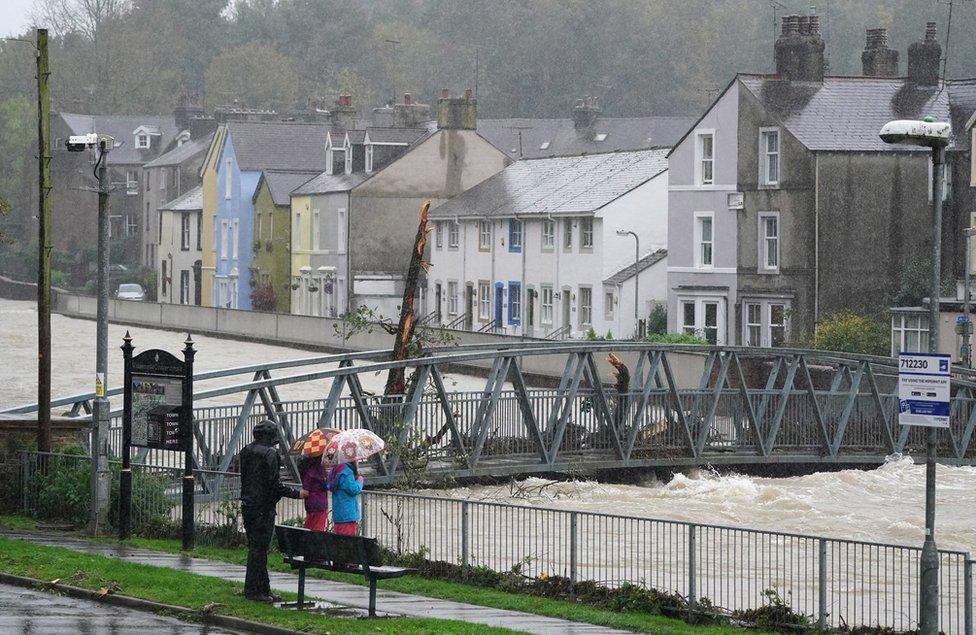
Rivers the same height as the bridges that cross them have become a common sight during heavy rain
The Department for Environment, Food and Rural Affairs (Defra) said Flood Re had helped more than 350,000 households since its launch but subsidising insurance for profit-making business posed different problems.
Often businesses did very well out of the prime locations near rivers and coast which make them vulnerable to flooding, Defra said. It is wary of other businesses and, indirectly, customers subsidising profit making organisations.
Lynne Jones, who chairs Keswick Flood Action Group, said she could understand how sympathy for larger firms or the richer businesses in popular riverside locations might be limited.
But the retired B&B owner was concerned for householders who run businesses from their homes thereby making neither insurable for flood, even through the Flood Re scheme.
People who run post offices, corner shops or B&Bs and live on the premises "suffer two sorts of trauma because they lose their livelihood and they lose their home and they don't have any support", she said.
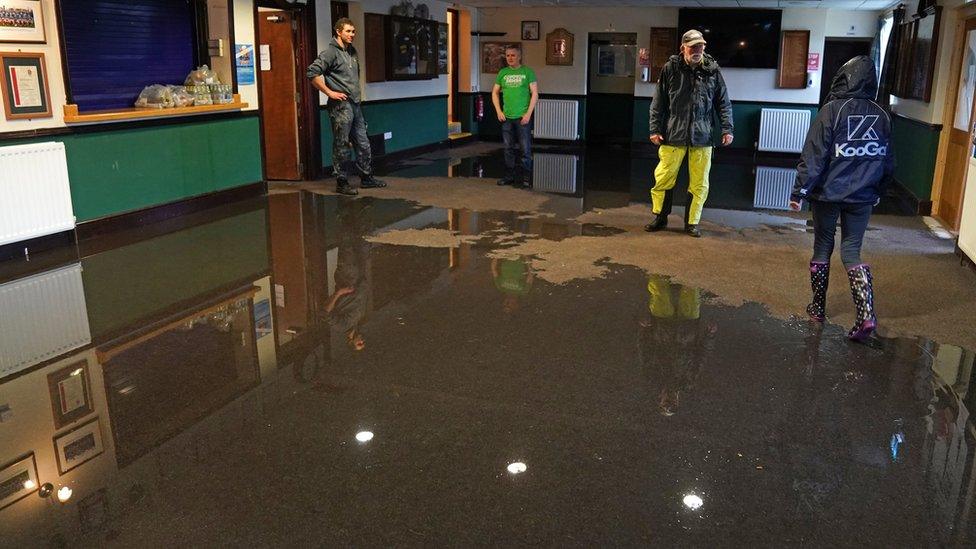
Keswick Rugby Club's clubhouse flooded in October
Defra said it was concentrating on working with businesses to help them become more physically resistant to flooding.
After the devastation of 2015 multimillion-pound defences such as walls, embankments and floodgates were put up in areas of high risk - some paid for by the communities themselves.
It dawned on business owners that something else was needed if they were going to face regular extreme weather. They could not afford to repeatedly clean out and refurbish, especially without insurance.
Mr Marshall took a different approach refitting his shop, which is is now "like a wet room".
"It is just like a fish tank in there," he said. "You wouldn't know it because it's got lovely floors and everything else but that's how it works."
A tar-like substance painted on the walls prevents flood water soaking into them. The floors are laid with an adhesive designed to stop them lifting if submerged.
"We can just wash out and leave it. We don't have to dry it all and re-plaster it," Mr Marshall says. So, if water makes it past the floodgates he installed after the last flood, he just needs to move his stock out of harm's way and wait for it to recede.
But more innovation is needed.
Last week's floods have, once again, concentrated minds in Cumbria.
While, two hours north in Glasgow, assembled nations discuss the increasingly extreme effects of climate change on the planet, Cockermouth Chamber of Trade has discussions of its own planned.
A meeting on Tuesday night started the ball rolling. A survey to find out who in the town has insurance will be next. Then they need to work out how, and what, to change if the worst fears of those gathering in Glasgow are realised.

Follow BBC North East & Cumbria on Twitter, external, Facebook, external and Instagram, external. Send your story ideas to northeastandcumbria@bbc.co.uk, external.
Related topics
- Published29 October 2021
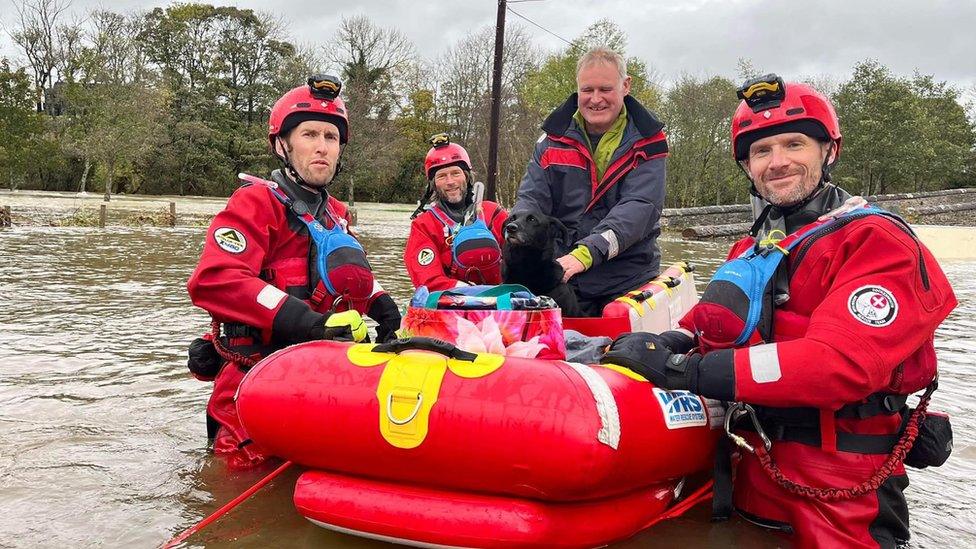
- Published29 October 2021

- Published12 November 2019

- Published31 May 2016
